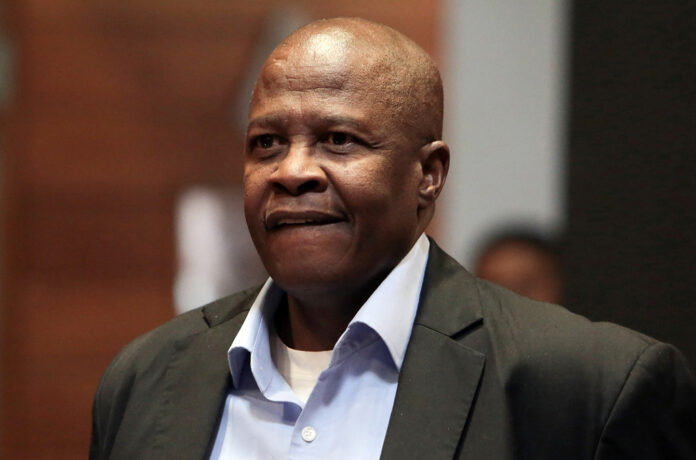Ex-Transnet boss Brian Molefe’s legal team is pushing back fiercely against what it sees as an unjust prosecution, determined to ensure its clients are treated fairly in the eyes of the law.
Mpho Molefe of Molaba Attorneys, who represents Brian Molefe and his co-accused, voiced their growing frustration. “We are seriously considering challenging them [NPA] on the splitting of the charges…”
The team is holding off on its next move until it had reviewed the Investigating Directorate Against Corruption’s (Idac) full disclosure, seeking clarity on what is contained in the second docket.
According to Molefe, the directorate has not followed due process in dealing with the latest charges against their clients, particularly concerning matters related to Transnet.
“We probably would have made representations and shown them that you can’t separate the issue of the transaction from the acquisition. One leads to another; it’s the same set of facts,” he said, questioning why Idac had not given them the same opportunity to respond to draft charges as was afforded during the previous arrest.
Molefe further criticised the process, noting that his team was only notified late last week to bring the clients in for additional charges, with scant details provided until the court appearance.
“When we asked what the further charges were about, we were told we would receive that information in court, as Idac did not want it leaked,” he said, describing the lack of transparency as troubling.
The legal team also raised concerns about the refusal to provide a warrant of arrest ahead of time and the late disclosure of bail conditions. “They said this case is much more serious than the first one, something we do not understand, because the first case included the very same allegations. How can this be more serious?” Molefe asked.
He questioned the basis for the arrests, arguing, “Despite our clients’ arrests on Monday, we had not received the contents of the docket and feel our clients should never have been arrested if the investigation was still ongoing. There’s nothing preventing them from disclosing it now.”
Molefe underscored what he sees as a shift away from proper legal practice: “Under the new constitutional dispensation, the police are supposed to investigate before arresting, unlike during the apartheid era when they had the licence to arrest first and investigate later.”
Although critical of the current process, Molefe acknowledged that at least the legal team was notified to bring the clients to the police station, avoiding a surprise arrest at their homes.
“At least we were not taken by surprise. It’s unlike when they just rock up at our clients’ residences, and the next thing we know, clients are making frantic calls to us and saying, ‘Please come to the police station’.”
Despite what Molefe describes as harassment and a campaign to tarnish his clients’ public image, he said they are eager to have their day in court.
In response to a detailed inquiry, Idac spokesperson Henry Mamothame, said the matter is currently in court, therefore, these are not issues they would ventilate in the media.



